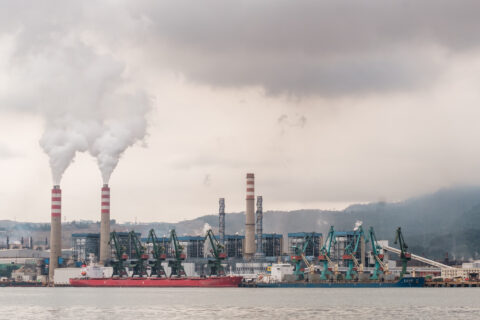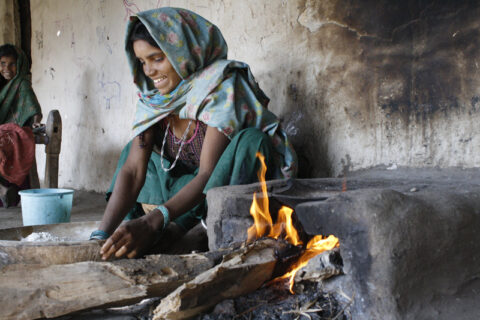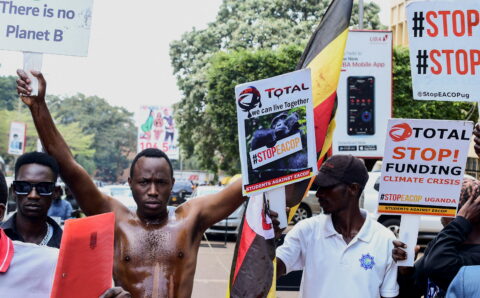It has become a tradition for world leaders to kick off the annual UN climate conference by telling each other and the world what they’re doing to tackle climate change.
This year, some big hitters like the US’s Joe Biden and China’s Xi Jinping will stay away. Other influential leaders including Narendra Modi, Emmanuel Macron, Mohamed bin Salman, Mia Mottley, William Ruto and Lula Da Silva are due to attend.
World leader speeches at Cop28 are a chance to show off ambitious policies, bear witness to climate impacts, pledge funding and point fingers. Here are seven things to watch out for.
1. Fossil fuel phase-out
A broad coalition of nations is calling for a phase out, or at least phase down, of fossil fuels. They will face resistance from countries that rely on fossil fuels to generate revenue and keep their people content.
Any deal on a fossil fuel phase out will be struck by negotiators in closed meeting rooms towards the end of Cop28 in two weeks time.
But we will get a good sense of the strength of resistance from the first two speeches on Friday – that of UAE’s Mohamed Bin Zayed and Saudi Arabia’s Mohammed bin Salman.
Its not just Gulf petrostates that defend fossil fuels though. Several African leaders in particular want to exploit their fossil fuel reserves, they say, to bring wealth and electricity to their people.
Senegal’s Macky Sall and the Democratic Republic of Congo’s Felix Tshisekedi are among them. They may use their speeches to ask why they shouldn’t pump for new oil and gas when the likes of the US and Canada plan to increase production.
2. Tales from the frontline
After a year that had climate scientists reaching for the thesaurus to describe their shock at global temperature spikes, leaders will share how climate disasters hit their people.
In Libya, extreme rainfall overwhelmed decrepit dams and washed away much of the city of Derna in September.
Leaders from Iraq and East African nations may tell of extreme drought while South American leaders could address their weird winter heatwave.
Then there are the slow, creeping climate impacts. In the Pacific, rising seas and intensifying storms are eroding narrow atolls, while expanding desert eats into the fertile land of northern Africa and mountain glaciers retreat.
3. Start-up cash for a loss and damage fund
Negotiators are set to agree at Cop28 on how to set up a global loss and damage fund for victims of the climate crisis.
A handful of pledges are expected from the EU and others to get it started. Don’t get too excited: we’re talking in the region of $0.5-1 billion, not the $100bn a year developing countries ultimately want to see flowing through the fund.
Avinash Persaud, climate adviser to Barbados’ prime minister, told Climate Home that amounts like that should not be dismissed. “Countries can’t pull billions out of a hat,” he said, “because you have to budget in advance.”
Climate Action Network’s Harjeet Singh took a stronger line. “Recovery costs are soaring into the billions,” he said, “far exceeding the expected pledges of a few hundred million.”
4. Green Climate Fund pledges
The UN’s flagship climate fund held its four-yearly fundraising round in October. Pledges from wealthy countries totalled a disappointing $9.3bn – less than last time in 2019.
That’s left the fund’s secretariat looking to have to scale back ambition – help fewer farmers adapt to climate change, conserve less forest, protect fewer countries with early warning systems.
A few late pledges could improve its fortunes. Italy, Sweden and Switzerland have yet to announce contributions. Their leaders are attending.
The US and Australia are not sending leaders but could announce funds elsewhere. Both now claim to be climate leaders. This is the time to prove it with cash.
5. Bridgetown developments
Two years ago, Barbados’ prime minister Mia Mottley got some influential allies together in her capital city Bridgetown to plot how to transform the global financial system to make it work for climate.
Since then, her speeches have become must-watch verdicts on how that mission is going and where it should go next. We’re expecting her to call for more ambition in reforming banks like the World Bank so that they spend more on climate.
Her speeches often include innovative ideas. Last year, she suggested that oil companies should pay for climate damages. With Barbados’ support, France and Kenya have set up a task force to look into making that happen, which Emmanuel Macron and William Ruto are likely to promote. So what Mottley proposes this year is worth watching.
6. Coal-to-clean updates
Two years ago in Glasgow, the concept of a Just Energy Transition Partnership was launched. The idea was for rich countries to financially help coal-reliant emerging economies switch to renewables.
South Africa piloted the idea, while agreements with Indonesia and Vietnam came next. All have been plagued by arguments over the pace of change and the nature of finance.
President Cyril Ramaphosa will give an update on South Africa’s package on Friday. The most advanced of the partnerships, it nonetheless faces political challenges.
Fearing repression in Dubai, non-binary people stay away from Cop28
Vietnam is due to announce its investment plan at Cop28. Prime minister Chinh Pham Minh will no doubt talk it up, without mentioning that he’s jailed several environmental campaigners.
The words of Indonesian president Joko Widodo could be interesting as, ahead of February’s elections, he could air his complaints about rich countries’ insistence on mainly loans not grants.
With India uninterested, there are no more in the immediate pipeline but plenty of leaders will emphasise the volume of investment needed to support clean development.
7. Bids to host Cop29
Two years ago, we already knew that we’d be in the United Arab Emirates for Cop28. Similarly, we already know that Cop30 will be in Belém in Brazil in two years time.
But we don’t know where we’ll be this time next year. It’s up to the UN’s Eastern Europe group to decide. Various EU states have offered but Russia has vetoed them because of EU support for Ukraine.
Russia supports Azerbaijan’s candidacy but Armenia, which is at war with Azerbaijan, opposes that and wants to host itself – which Azerbaijan opposes right back.
Meet the Italian fugitive advising Emirati start-up Blue Carbon
The various potential hosts could use their speeches to make their case. If there’s no agreement the default is for the UAE to keep the presidency with the physical conference held at the UN climate headquarters in Bonn, Germany.
For Cop31, contenders include Australia, whose leader is not on the speaker list, and Turkiye whose president Recep Tayyip Erdoğan will speak on Friday.
The post Seven things to watch out for in world leader speeches at Cop28 appeared first on Climate Home News.
Seven things to watch out for in world leader speeches at Cop28
Climate Change
Judge Rejects Trump Administration’s Plan to End NYC Congestion Pricing
A federal court ruled that the Trump administration’s efforts to end the program are unlawful. The federal government is reviewing its legal options, including an appeal.
A federal judge ruled Tuesday that the Trump administration’s efforts to shut down New York’s congestion pricing program are unlawful.
Judge Rejects Trump Administration’s Plan to End NYC Congestion Pricing
Climate Change
Gulf oil and gas crisis sparks calls for renewable investment
As well as claiming more than 550 lives, the war between the United States and Israel and Iran threatens to inflict severe economic damage across the world, by pushing up the oil, gas and energy prices.
About a fifth of the world’s oil and liquefied natural gas (LNG) passes on ships through the Strait of Hormuz, a narrow stretch of water separating Iran from the Gulf countries.
With Iranian missiles hitting oil and gas sites in the Gulf – including the world’s largest LNG export facility Ras Laffan – and fears that ships may be targeted, Qatar has halted its LNG production and traffic through the Strait has slowed drastically.
The disruption has sent oil and LNG prices surging, raising costs for households and businesses worldwide that rely on fossil fuels for electricity, transport, heating and manufacturing.
In two online briefings – focused on Europe and Asia, respectively – energy analysts warned journalists that prolonged disruption could trigger a global economic crisis. Governments should seek to reduce their reliance on oil and gas – through investments in clean energy and energy efficiency – rather than just seeking non-Gulf oil and gas suppliers, they said.
Seb Kennedy, founding editor of EnergyFlux.News, said the war is “a bonanza for US LNG exporters and a catastrophe for everyone else.” He added that “if this goes on for months and months then [the energy crisis] could be on the scale we saw in 2022”.
Asia hit hardest
Asian economies are expected to bear the brunt as the largest buyers of Qatari LNG. Research by ZeroCarbon Analytics suggests that Japan and South Korea, which get over three-fifths of their energy from oil and gas imports, are among the most vulnerable.
Sam Reynolds, a researcher from the Institute for Energy Economics and Financial Analysis said that Japan’s definition of energy security prioritises diversifying fossil fuel supply over promoting domestic renewables and, while Reynolds said this crisis could change that, he doubts that it will. Both Japan and South Korea are likely to speed up their pursuit of nuclear energy though, he added.
Nuclear comeback? Japan’s plans to restart reactors hit resistance over radioactive waste
Several South-East Asian nations – like Vietnam, the Philippines and Thailand – have invested in infrastructure to import LNG over the last few years in an attempt to gain energy security by diversifying supply routes beyond natural gas pipelines.
But ZeroCarbon Analytics researcher Amy Kong said that these countries were “seeing the same problems with new dealers” as “all the cards are held by a few LNG suppliers”. As these countries have huge untapped renewable potential, she said that “clean energy – not LNG – would be the key to avoiding impacts from these crises”.
Khondaker Golam, research director at Bangladesh’s Centre for Policy Dialogue, said Bangladesh’s already strained energy system will come under further pressure. In the short term, the government is likely to ration supply and seek LNG cargoes from outside the Gulf. Over time, however, the crisis could accelerate implementation of the country’s rooftop solar programme and other renewable projects.
China and India are also reliant on Gulf oil and gas and are now exploring alternative suppliers like Russia and, at least in India’s case, Canada and Norway. Over the longer term, Oxford University energy and climate professor Jan Rosenow said that China is also likely to double down on moving away from oil and gas by promoting electric vehicles, batteries and electrifying industries.
Although Europe imports a smaller share of its energy from the Gulf than Asia, it will not be insulated from price shocks. As Asian buyers compete for LNG cargoes – particularly from the US – gas prices will rise across the world, Kennedy added, with Europe already seeing increases.
Europe suffers too
Rosenow said that he was experiencing “deja vu” from when Russia restricted gas supplies to Europe, sparking a global energy crisis. Following that, he said, Europe had “not really managed to scale up the alternatives fast enough”, adding that “now we pay the price for that”.
He cited the example of Germany, where the government last week weakened requirements for buildings to install electric heat pumps instead of gas boilers. “We [in Europe] just haven’t made enough progress in terms of rolling out heat pumps, decarbonising industry and scaling up electric mobility,” he said.
Some in non-Gulf oil and gas producing countries have argued that this disruption justifies more production. Kennedy said the industry would “do everything it can to make that case”, but warned that new projects must consider demand decades ahead. By then, he said, “this conflict has probably long been forgotten about and we’re on to the next one”.
Uganda may see lower oil revenues than expected as costs rise and demand falls
In the United Kingdom, the government is under pressure from the right-wing opposition and US President Donald Trump to reverse its ban on licenses for new oil and gas fields in the North Sea.
But business secretary Peter Kyle said the crisis showed the UK must “double down” on renewables to protect its “sovereignty” as the crisis has exposed the country’s reliance on fossil fuels “from parts of the world which are fundamentally unstable”.
“We keep on seeing these lived examples of how instability, through regional instability, is creeping into our energy prices for which the British government has no agency”, he said.
Interest rates stymie renewables
But in the short term and without government policy intervention, Morningstar equity analyst Tancrède Fulop told Climate Home News that the crisis is likely to hold back the development of renewables.
This is because rising inflation from higher energy costs is likely to prompt governments to raise the cost of borrowing, he said. As renewables projects typically require large upfront capital investment, higher borrowing costs can undermine profitability.
Gas-fired power plants, by contrast, typically require lower initial investment than solar, wind or hydro, but higher operating costs over time, as fuel must be continuously purchased.
“What we saw between 2022 and 2024 with high inflation, high gas and power prices – a bit similar to today – renewable companies materially underperformed because of those high interest rates,” he said, “so all in all it won’t be as simple as oil and gas prices are surging so it’s good for renewables”.
The post Gulf oil and gas crisis sparks calls for renewable investment appeared first on Climate Home News.
Gulf oil and gas crisis sparks calls for renewable investment
Climate Change
US set to exit UN climate convention in February 2027
The United States is set to quit the world’s landmark climate convention next February, after the Trump administration formally notified the UN of its previously announced decision to withdraw.
UN Secretary-General António Guterres communicated last Friday that the UN treaty depository had received Washington’s formal notice to leave the UN Framework Convention on Climate Change (UNFCCC).
Adopted in 1992 at the Rio Earth Summit, the climate treaty is the cornerstone of global efforts to curb climate change and tackle its impacts.
The US withdrawal will take effect on 27 February 2027 – one year after the formal notification – as required by the terms of the convention.
The US, the world’s second-largest emitter, will be the first nation to formally exit the treaty and the only one recognised by the UN outside of it.
‘Colossal own goal’
In January, President Donald Trump, who has called climate change a “con job”, announced his administration’s intention to quit the UNFCCC and 65 other international organisations and instruments, including the Intergovernmental Panel on Climate Change (IPCC), the most authoritative global voice on climate science, and the Green Climate Fund (GCF), the world’s largest multilateral climate fund.
A White House factsheet said President Trump was ending US participation in international organisations that “undermine America’s independence and waste taxpayer dollars on ineffective or hostile agendas”.
“Many of these bodies promote radical climate policies, global governance, and ideological programmes that conflict with US sovereignty and economic strength,” it added.
At the time, the UNFCCC chief Simon Stiell called the US decision to leave the convention “a colossal own goal which will leave the US less secure and less prosperous”.
“While all other nations are stepping forward together, this latest step back from global leadership, climate cooperation and science can only harm the US economy, jobs and living standards, as wildfires, floods, mega-storms and droughts get rapidly worse,” he added.
Relinquishing obligations
At the end of January 2026, the US already formally left the Paris Agreement, under which countries agreed in 2015 to try to limit global warming to “well below” 2 degrees Celsius above pre-industrial levels and to issue regular emissions-reduction plans. Trump pulled the US out of the accord in 2020 before President Biden re-joined it in 2021.
While the Trump administration had effectively already disengaged from global climate action immediately after its inauguration, its formal departure from the UNFCCC will free it from formal obligations, including reporting detailed greenhouse gas emissions inventories and providing funding for the convention.
The US already stopped funding the UNFCCC and failed to submit its emissions data last year. The federal administration also sent no delegates to the COP30 summit in Brazil last November.
Washington remains involved in other international negotiations with climate implications – including talks on a UN treaty to curb plastics pollution and efforts to price emissions in the shipping sector – where it has sought to slow progress and block binding global measures.
A route back in?
The US could potentially rejoin the UNFCCC in future, likely under a different administration, but there are different views on how complicated that process would be.
The US Senate ratified the UN climate convention – with no opposition – in 1992 and some experts believe a future president could rejoin the UNFCCC within 90 days of a formal decision based on the original “advice and consent” of the Senate.
But other legal experts told Carbon Brief that theory has never been tested in court and a new two-third majority vote in the Senate might be required, which would be challenging with the vast majority of Republican Senators currently opposed to membership.
The post US set to exit UN climate convention in February 2027 appeared first on Climate Home News.
-
Greenhouse Gases7 months ago
Guest post: Why China is still building new coal – and when it might stop
-
Climate Change7 months ago
Guest post: Why China is still building new coal – and when it might stop
-

 Greenhouse Gases2 years ago
Greenhouse Gases2 years ago嘉宾来稿:满足中国增长的用电需求 光伏加储能“比新建煤电更实惠”
-
Climate Change2 years ago
Bill Discounting Climate Change in Florida’s Energy Policy Awaits DeSantis’ Approval
-
Climate Change2 years ago
Spanish-language misinformation on renewable energy spreads online, report shows
-

 Climate Change2 years ago
Climate Change2 years ago嘉宾来稿:满足中国增长的用电需求 光伏加储能“比新建煤电更实惠”
-
Climate Change Videos2 years ago
The toxic gas flares fuelling Nigeria’s climate change – BBC News
-

 Carbon Footprint2 years ago
Carbon Footprint2 years agoUS SEC’s Climate Disclosure Rules Spur Renewed Interest in Carbon Credits








